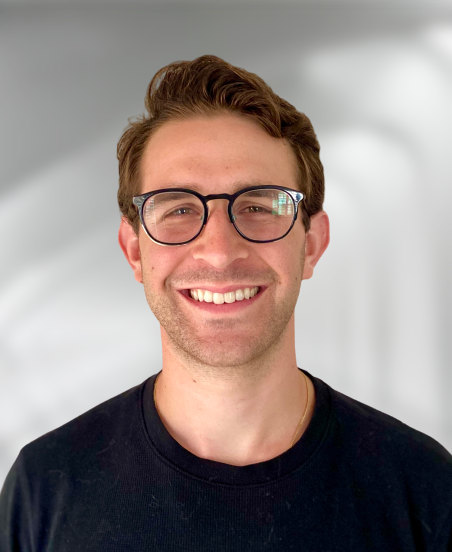A Lehigh master’s degree in Healthcare Systems Engineering gave him the knowledge, skills, and mindset to turn his problem-solving ideas into startups, while on the path to medical school
 As a first-year medical student, Jared Dashevsky ’18 ’19 M.Eng. realized how hard it was for classmates to keep up with the latest issues impacting the U.S. health care system.
As a first-year medical student, Jared Dashevsky ’18 ’19 M.Eng. realized how hard it was for classmates to keep up with the latest issues impacting the U.S. health care system.
“No one knew about Medicare and the Affordable Care Act and what was going on with drug pricing,” he recalls.
Dashevsky had delved into those topics and more while earning a master’s degree in Healthcare Systems Engineering (HSE) from Lehigh University’s P.C. Rossin College of Engineering and Applied Science. The 30-credit program teaches students—many of whom are premed—systems engineering tools and methodologies and how to apply them to the complex and often fragmented environment of health care delivery.
He quickly saw how his HSE background was giving him a leg up at the Ichan School of Medicine at Mount Sinai in New York and decided to use his engineering skills to find a way to make it easier for colleagues to access health news.
Dashevsky began by interviewing students—a quality and process improvement technique—and found they were too busy with their studies to follow daily reports.
After brainstorming a solution, he developed a weekly newsletter called Healthcare Huddle, named after the brief meetings doctors hold with staff prior to seeing patients.
Launched earlier this year, the newsletter delivers quick health tidbits via email and social media. Topics spring from the news of the day: for example, a recent piece on disparities in colon cancer rates among Black men following the death of popular actor Chadwick Boseman.
“We have a team of 13 and we’re producing content every week,” he says. “We have over 10,000 people in our audience who are students, professors, doctors, and residents who are now up to date on health care.”
As an undergrad majoring in psychology, Dashevsky knew he was on a path to medical school. It was a goal he listed in his fifth-grade yearbook.
But first, he wanted to earn a master’s degree—something that could give him an edge.
“What I really wanted was a program that could give me a much different perspective,” says Dashevsky. “I thought not only would I be getting the systems engineering background in health care, but it would make me stand out.”
Lehigh’s HSE program can be completed in as little as 10 months or spread out over a longer timeline to accommodate working professionals.
Dashevsky, who grew up in Cherry Hill, N.J., liked that the HSE program gave him real-life experiences from the get-go.
In one group project, he examined why underserved women in Pennsylvania’s Lehigh Valley were less likely to get yearly mammograms. Interviews with women and doctors identified three causes: lack of transportation, child care issues, and long work hours.
A solution was to hold a mammogram festival on a weekend where children could be entertained while their mothers got their screenings.
In his capstone project, Dashevsky worked with another graduate student, Jonathan Blum ’18 ’19 M.Eng., to create a better wait-list system to fill canceled doctor appointments.
Typically, doctors keep a list of people willing to move up their appointments or be seen on short notice, with staff calling them one-by-one as slots open.
Using simulation skills taught in HSE, Dashevsky and Blum created a computerized system called Nayroo that automatically contacts a patient on a wait list via text, email, or phone call as soon as an opening appears. The system moves on to the next patient if the first one declines.
“Not only does this get the patient in the office sooner, but it also saves the office from lost revenue,” Dashevsky says.
As he goes through his second year of medical school, Dashevsky says earning his HSE degree first was the right move.
He says the Icahn School expects students to become doctors who are also skilled in other areas such as research or activism.
“I see my calling as a physician who is an entrepreneur,” he says.
Dashevsky says the HSE program fueled that calling, giving him knowledge of healthcare systems and the engineering tools to think big and develop Nayroo and Healthcare Huddle.
“The biggest thing I got out of it was the skillset and mindset needed to identify problems small or large and to think innovatively on how to solve them.”
—Kathy Reinhard is a freelance contributor for the P.C. Rossin College of Engineering and Applied Science

